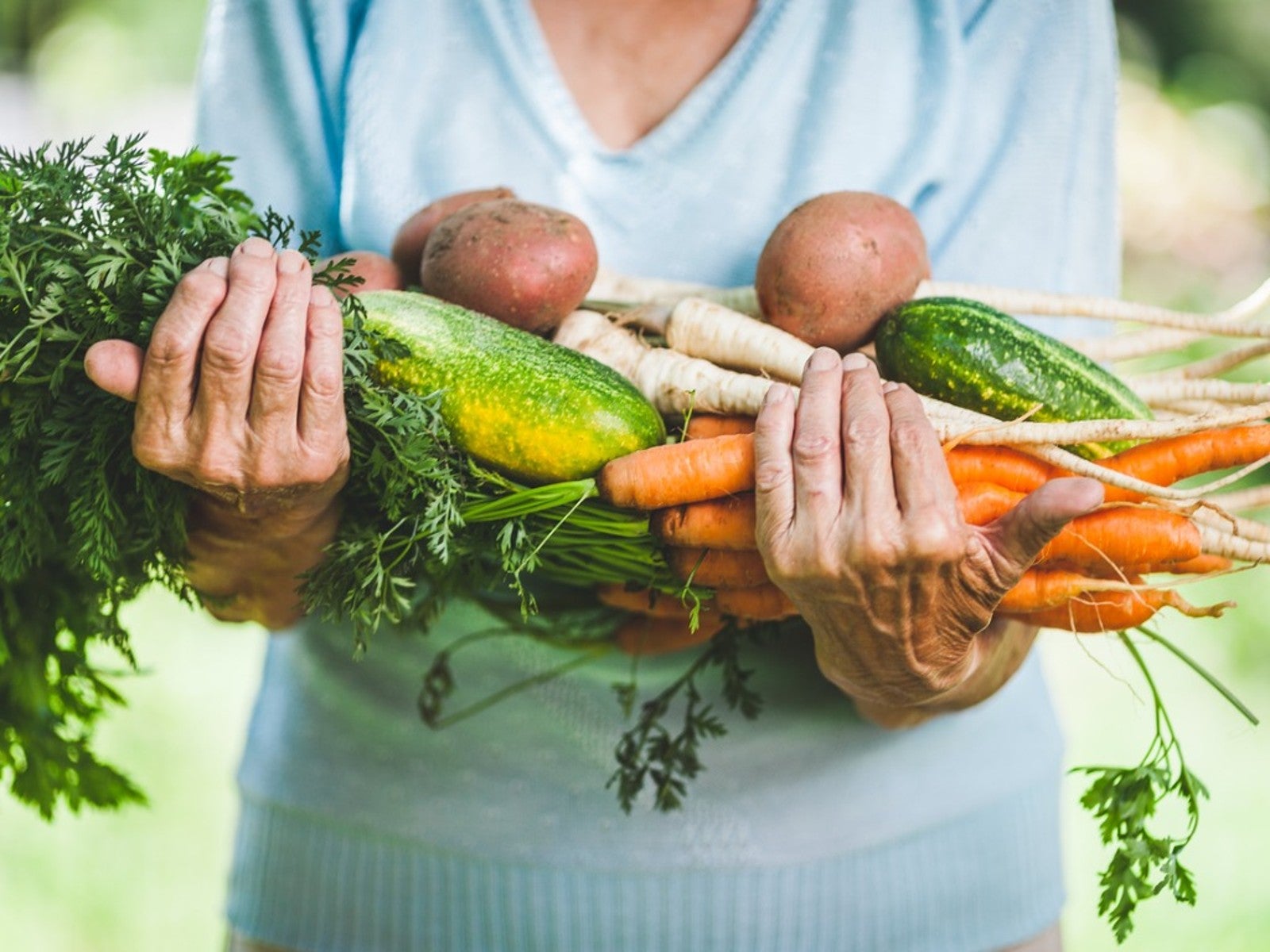What Vegetables Are Good For Elderly Gardeners To Grow?


Studies have shown that gardening is good for physical as well as mental health. This is as true for senior gardeners as for those who are younger. In addition to the health benefits, growing one’s own veggies can help spread out the typical fixed income enjoyed by most elders. Fruits and vegetables for older adults are also an important part of a balanced diet that can mitigate health issues and keep seniors feeling fit.
What Vegetables Are Good for Elderly Gardeners?
Probably the most important aspects of gardening when we’re older are safety and comfort. Any planning vegetable and fruit beds should take into consideration range of motion limits and limited maintenance levels.
The choices of food to grow should also be dependent on any dietary restrictions, something that often occurs as we get older. For instance, many older folks are prey to diverticulitis, a condition that can be aggravated by seedy foods like berries, and items like nuts. Producing a variety of foods in different colors may also stimulate flagging appetites in seniors. Plants like cabbage are high in antioxidants, lower the glycemic levels, and are heart healthy with low calories. Spinach enhances eyesight and boosts bone density.
Additional considerations include the size of the area to be planted. Many seniors have downsized their homes, and garden spaces may be too small for larger plants. A bed raised to elbow height may work best, or an adjusted height for walkers and wheelchairs may be necessary.
Nutritious Vegetables for Seniors
The regular intake of leafy greens of many varieties have been shown to result in less decline of brain activity. The active compounds lutein and phylloquinone are present in leafy greens like kale and arugula. Leafy greens grow well from seed, do not need a lot of space, and may be successively planted for a constant supply. Most may be eaten washed and raw. Several are also excellent additives to pasta, soups, and other dishes.
Get To the Root of Health
Root vegetables require loose well draining soil to form properly. Such conditions can be found in raised beds that also provide a higher harvest and maintenance space. Carrots are a classic healthy root that provides Vitamin C and other wonderful nutrients and vitamins. They grow quickly from seed and are ready to harvest in just a couple of months.
Beets, turnips, rutabaga, onions, radishes, and potatoes are all excellent root vegetables for elderly growers. They may be grown in the ground, in raised beds, and in larger containers with potting soil. Root vegetables also keep for quite a while and are helpful in supplementing the food budget after the growing season has passed.
Sign up for the Gardening Know How newsletter today and receive a free copy of our e-book "How to Grow Delicious Tomatoes".
Vegetables that Grow Well in Raised Beds
Raised beds not only lift the work area up for easier access, but they provide warm soil earlier in the season, allow for easy soil amendment, and can be made water-wise with drip irrigation. Such beds can be positioned close to the home, making trips to harvest quick and safe. When crop rotation and successive planting techniques are used in raised bed situations, the diversity of food and the length of the gardening season is increased.
Best Vegetables for Seniors
The best vegetables for seniors are those they like to eat! A wide variety of fruits and vegetables need to be incorporated into every person’s diet regardless of age. Dwarf varieties of some plants such as tomatoes will fit nicely into containers or raised beds and will not produce more food than a person can eat.
- Beans
- Cabbage
- Lettuce
- Radish
- Tomatoes
- Strawberries
- Herbs
- Parsnips
- Carrots
- Peppers
- Cucumbers
- Onions
- Garlic
- Broccoli
- Cauliflower
Tips on Gardening for Seniors
In planning for the senior garden, consider ergonomic tools to make work easier, raised cropping arrangements, safe pathways, vertical structures to keep fruit and veggies off the ground and ease of harvest and care.
In order to make gardening more enjoyable and safer, gardeners should follow a few tips:
- Work outdoors in the morning or evening when temperatures are cooler.
- Stay hydrated, and wear a sunhat and cover arms and legs to prevent sun damage.
- Use lightweight tools where possible to prevent strain.
- Keep a support nearby if necessary.
- A garden chair provides a place to rest.
- Have large containers on casters and keep a wheelbarrow or other cart available to help transport ungainly items.
- Before gardening, perform some light stretches to encourage blood flow and reduce muscle strain.

Bonnie Grant is a professional landscaper with a Certification in Urban Gardening. She has been gardening and writing for 15 years. A former professional chef, she has a passion for edible landscaping.